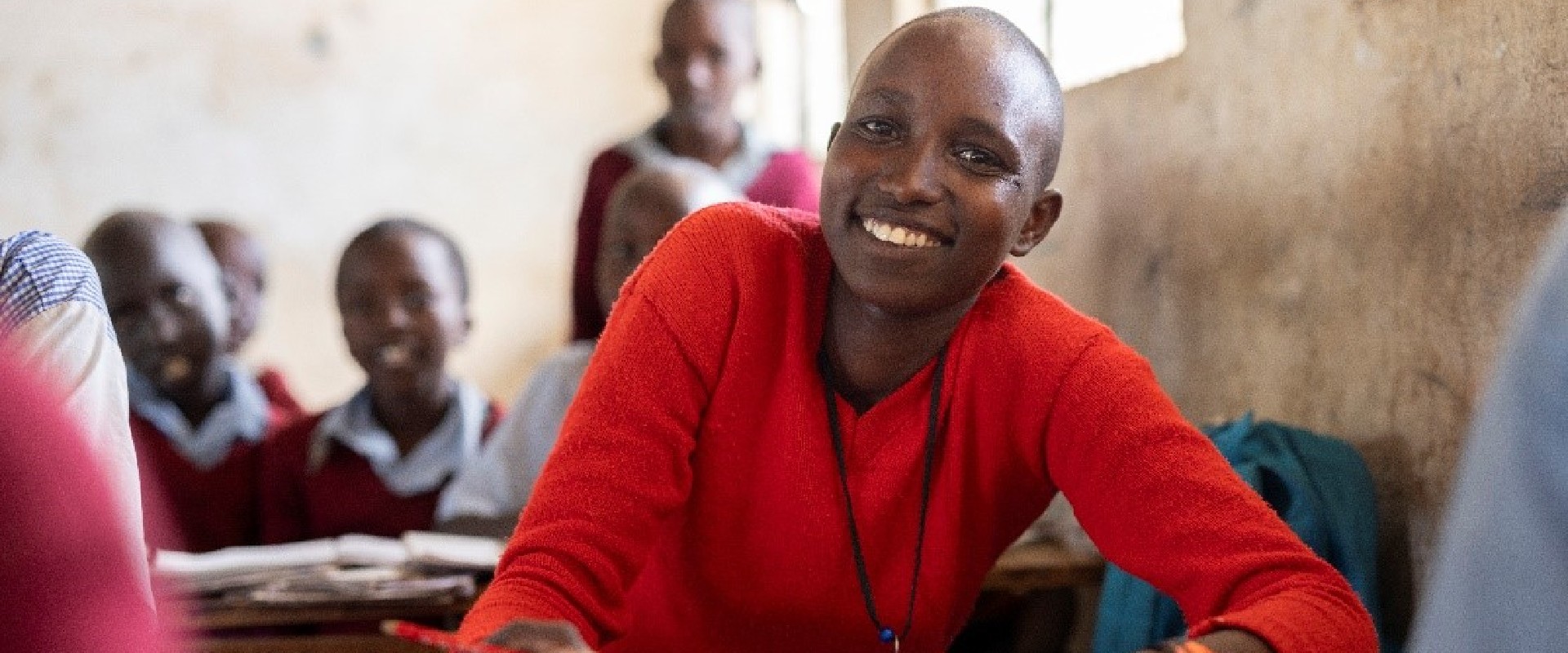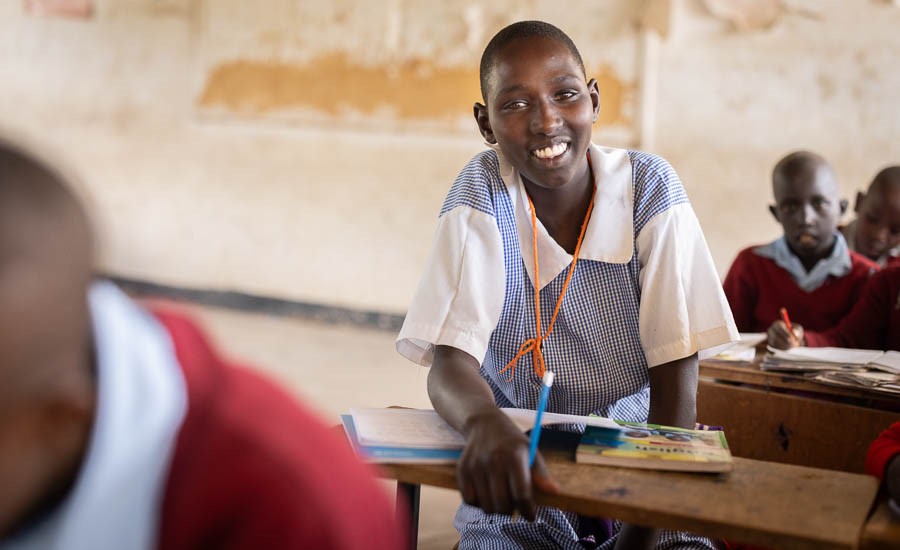Rebecca escapes early marriage and returns to school
August 14, 2024

Rebecca, Samburu County
Rebecca lives in Samburu County. Two months ago, when Rebecca learned that her uncle had arranged for her to marry a 60-year-old man from a neighboring village, she was terrified. “I didn’t know the man,” she says of the intended groom “but I knew it was wrong, and I was afraid”.
Early marriage for girls
Child marriage is a harmful practice that has not only affected some of Rebecca’s friends but her two older sisters, who were married at the ages of 11 and 12. But Rebecca’s mother had seen the harmful effects of early marriage on the two oldest daughters and knew she needed to take a different path with her youngest daughter.
Rebecca explains: “My mother said, ‘I’m not doing this again’ and snuck me into this school and I haven’t been home since.” With an onsite dormitory for students, Rebecca now resides at a school in Samburu County, to the north of central Kenya.
Happy and relieved, Rebecca is now free to concentrate on her education. “Even when I was at home, I had to take care of the cows. I couldn’t go to school every day. Here I can concentrate and learn. I understand that I have rights and if my uncle tries again, I will report him.”
When she finishes her education, Rebecca wants to become a teacher. “I look up to my teacher because she gives me knowledge. I want to do the same thing one day,” she says.
Leaving school for work
In this rural community, boys are also at risk of having their education cut short, education, forced to give up their schooling to herd animals, work as day laborers, or engage in unlawful activities such as cattle raiding.
Ljenisa is 14 years old. For the first six years of his schooling, he attended a local school where his family lived. However, his parents could not afford the costs of his ongoing education. For three years, he looked after the family’s cows, camels, and goats instead.
Fortunately, one of the village leaders saw that Ljenisa had great potential and helped to arrange his enrolment. Ljenisa says: “If it weren’t for the dormitory, I would be at home taking care of the animals. At the village school, we would only go for three hours and come home. Here we study all day and do not have to worry about what is happening at home.
 Namelok, age 14.
Namelok, age 14.
ChildFund’s support has moved this place very far,” Chief Jacob says. “They have helped young girls with school fees so they can graduate and become employed. Ideas and advocacy and education, hand in hand, have transformed the lives of girls in our area.
A safe haven for students
Through the support of our partners, the school now has water tanks, hand washing stations, and a school garden. The dormitories have also been renovated and equipped with beds, mattresses, blankets and mosquito nets.
Using a child-centered approach, students are offered a sanctuary and an alternative to dropping out of school. At the school’s children’s rights club, students learn about the risks they face, their rights, and what to do if these rights are violated.
The risks are very real. Five months into 2023, nine cases of attempted early marriages occurred among female students attending the school.
Namelok is 14 years and has recently started attending school. For the past four years, she worked as a herder for her family’s cattle a couple of miles away. Before that, she attended preschool and primary school in her home village.
Earlier this year, Namelok’s father decided she should get married. Her mother saw where that would lead and chose to take her to this school instead. Now she lives at school during the week and is free to concentrate on her future. “I have seen many people prosper because of their education,” says Namelok.
Rebecca’s, Namelok’s, and Ljenisa’s stories are not unusual. Many children living in rural areas are forced to leave school early. Families cannot afford the costs of their education and are reliant on the income young people can bring to the household.
Not everyone gets a second chance. But our work gives more children the opportunity to continue their education.







